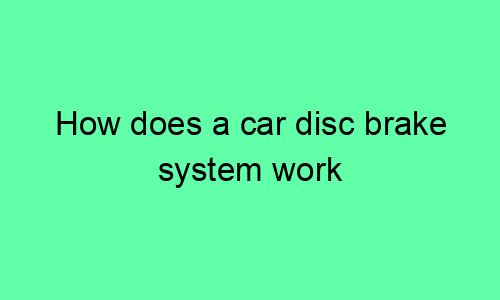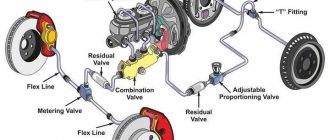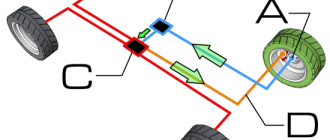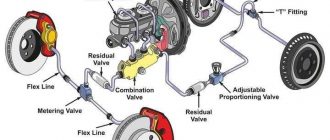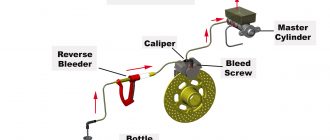How Does a Car Disc Brake System Work?
Introduction
Disc brakes are a common type of brake system used in cars. They are more effective than drum brakes and are less likely to fade. Disc brakes work by using a caliper to squeeze a pair of brake pads against a rotating disc. This creates friction, which slows down the car.
Components of a Disc Brake System
A disc brake system consists of the following components:
- Brake pads: The brake pads are made of a material that is resistant to heat and wear. They are attached to the caliper and make contact with the brake disc.
- Brake caliper: The brake caliper is a housing that holds the brake pads and the piston. The piston is actuated by the brake fluid, which forces the brake pads against the brake disc.
- Brake disc: The brake disc is a metal rotor that is attached to the wheel. The brake pads make contact with the brake disc to create friction.
- Brake fluid: The brake fluid is a hydraulic fluid that is used to transmit the force from the brake pedal to the brake caliper.
- Brake lines: The brake lines are used to carry the brake fluid from the brake master cylinder to the brake caliper.
How a Disc Brake System Works
When the brake pedal is depressed, the brake fluid is pressurized and sent to the brake caliper. The brake fluid forces the piston in the brake caliper to move, which in turn forces the brake pads against the brake disc. This creates friction, which slows down the car.
The amount of friction created is proportional to the force applied to the brake pedal. The harder the brake pedal is pressed, the more friction is created and the slower the car will stop.
Advantages of Disc Brakes
Disc brakes have a number of advantages over drum brakes, including:
- More effective: Disc brakes are more effective at stopping a car than drum brakes. This is because disc brakes create more friction than drum brakes.
- Less likely to fade: Disc brakes are less likely to fade than drum brakes. This is because disc brakes dissipate heat more effectively than drum brakes.
- More durable: Disc brakes are more durable than drum brakes. This is because disc brakes are made of stronger materials than drum brakes.
Disadvantages of Disc Brakes
Disc brakes also have some disadvantages, including:
- More expensive: Disc brakes are more expensive than drum brakes to manufacture.
- More complex: Disc brakes are more complex than drum brakes to maintain.
- Noisier: Disc brakes are noisier than drum brakes.
Conclusion
Disc brakes are a common type of brake system used in cars. They are more effective than drum brakes and are less likely to fade. Disc brakes work by using a caliper to squeeze a pair of brake pads against a rotating disc. This creates friction, which slows down the car.
